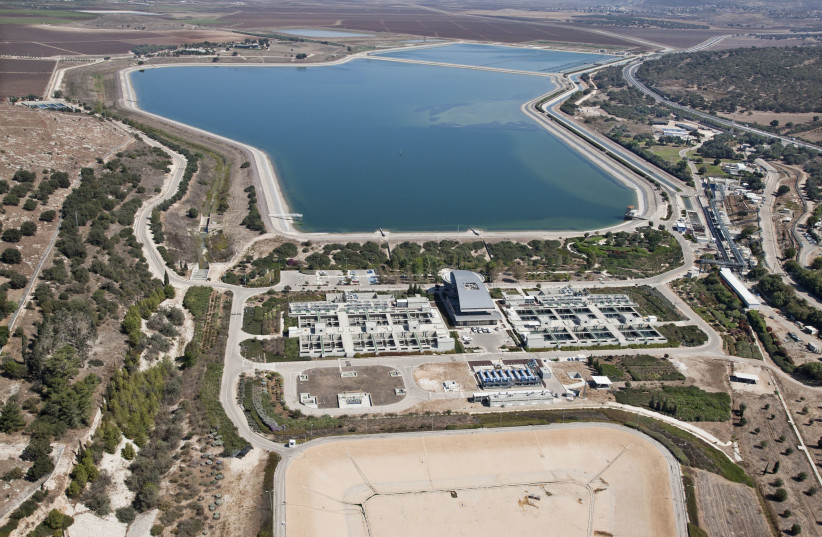One of the first international conferences to be held in Israel on emergency preparedness in the field of water is set to open on Monday.
The four-day event, called “Water Resilience & Emergency Preparedness 2023, is being hosted by the Israel Export Institute, the Foreign Trade Administration at the Ministry of Economy, Israel’s Manufacturers’ Association and the Israel Water Authority.
The goal of the conference is to build business collaborations and enhance knowledge sharing in the area of water security.
Around 300 participants worldwide are registered – including heads of water companies, representatives of consulting and engineering companies, emergency and cyber security managers, distributors, regulatory organizations, financial organizations and more.
Among the participants will be Dr. Şafak Basa, CEO of the Water Company of the City of Istanbul, and Dr. Steve Bieber, water resources program director for the Metropolitan Washington Council of Governments.

Topics of discussion will include water management, water treatment and purification, water security, emergency assessments and cyber protection, wastewater treatment, desalination and filtration, irrigation, water recycling, project execution and management, consulting, engineering and planning, water infrastructure equipment and leak detection.
Israeli companies will also feature their technologies.
Global water scarcity
In Europe, the climate is warming at twice the rate of the rest of the world, and water is growing increasingly scarce as the region experiences the worst-known drought in 500 years.
Last week, a hosepipe and sprinkler ban was imposed on some parts of the United Kingdom.
“Israel has dealt with water scarcity since its founding,” said Israel Export Institute Ayelet Nahmias-Verbin. “Therefore, we have developed technologies that put Israel several steps ahead.”
Today, Israel is a semi-arid country but has a water surplus due to its water sector management and water innovation. At the same time, Israel is at the forefront of managing security threats in the water sector. As such, said Nahmias-Verbin, countries worldwide are looking to Israel for advice.
“Israel is considered a water powerhouse on any scale, and among other things, due to its unique expertise in emergency and cyber security issues,” said Water Authority director Yehezkel Lifshitz. “As part of sharing Israel’s knowledge and experience in the field, the Water Authority organizes conferences and educational meetings with the professional community worldwide. In addition, the Water Authority has assisted in recent years as part of the humanitarian aid of the State of Israel in water distribution and restoration of damaged systems.”
This included in the Bahamas during the 2019 hurricane, in Turkey earlier this year after the earthquake and on the border of Poland and Ukraine, where individuals live in refugee camps with damaged infrastructure due to Russian rockets.
“These kinds of events promote cooperation between government bodies to improve the lives of residents worldwide,” Lifshitz said of the upcoming conference. “Israeli initiative and innovation have become a byword, and certainly in the field of water.”
Unique to this conference is the focus on emergency response. Basa will share how Turkey managed in the aftermath of its massive quake that killed more than 50,000 people and caused more than $34 billion in damage, according to the World Bank. Water infrastructure was significantly impacted.
Nahmias-Verbin said that nearly everyone is fighting over-stressed resources worldwide, and “there will be no solutions without international collaboration.” She encouraged “learning from each other to prepare for the next crisis.”
Matan Safran of the Council for Economic Affairs at the Economy Ministry said, “Unfortunately, the difficulties Israel has faced are now being faced by countries worldwide. Therefore, this conference is an important opportunity to share Israeli knowledge and experience.”
He said the senior officials from around the world selected to attend the water event will “hold high-quality business meetings with Israeli companies and hopefully create collaborations and business success stories for the future of all humanity.”
The Environment and Climate Change portal is produced in cooperation with the Goldman Sonnenfeldt School of Sustainability and Climate Change at Ben-Gurion University of the Negev. The Jerusalem Post maintains all editorial decisions related to the content.
